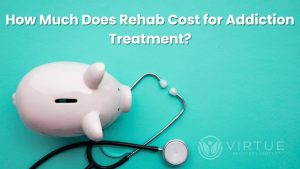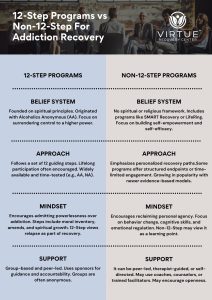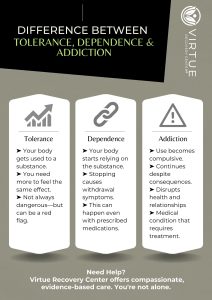Key Takeaways
- LSD alters perception and mood, causing hallucinations and emotional swings.
- Long-term use can lead to serious psychological conditions like flashbacks and psychosis.
- Comprehensive treatment programs can help individuals recover from LSD misuse.
What Is LSD and How Does It Work?
LSD is a synthetic chemical derived from ergot, a fungus that grows on grains. It is classified as a Schedule I controlled substance, meaning it has no accepted medical use and a high potential for abuse.
LSD primarily affects the brain’s serotonin receptors, altering mood, perception, and sensory experiences. After taking the drug, users may experience vivid hallucinations, distorted senses of time, and heightened emotions. These effects usually begin within 30–90 minutes of ingestion and can last up to 12 hours.
Short-Term Effects of LSD Use
The short-term effects of LSD vary widely from person to person, depending on the dosage and individual sensitivity. Some common effects include:
- Hallucinations and visual distortions.
- Altered perceptions of reality, time, and self.
- Intense mood swings, ranging from euphoria to anxiety or paranoia.
- Physical symptoms like increased heart rate, sweating, and nausea.
One of the most significant dangers of LSD is the potential for a “bad trip.” This occurs when the user experiences extreme fear, confusion, or panic while under the influence. Such episodes can lead to dangerous behaviors, including self-harm.
Long-Term Effects and Risks and Psychological Effects
Chronic LSD use can lead to persistent psychological challenges. Many users report experiencing flashbacks or reoccurrences of hallucinations long after their last dose. These flashbacks are part of Hallucinogen Persisting Perception Disorder (HPPD).
Other long-term risks include:
- Development of psychosis, particularly in individuals predisposed to mental health disorders.
- Difficulty with emotional regulation and cognitive functions.
- Increased risk of anxiety and depression.
LSD’s effects on mental health can be long-lasting, even after a user stops taking the drug.
Is LSD Addictive?
LSD is not considered physically addictive, as it does not produce withdrawal symptoms typically associated with substances like opioids or alcohol. However, it can lead to psychological dependence.
Users may become compulsive in their drug-seeking behavior, chasing the unpredictable “high” LSD provides. Frequent use can also build tolerance, requiring higher doses to achieve the same effects, which increases the risk of adverse reactions.
Risks of Overdose and Dangerous Interactions
While LSD overdoses are rare, taking high doses can result in extreme psychological distress, such as severe paranoia, delusions, or panic. Physically, users may experience increased blood pressure, rapid heart rate, or seizures.
Combining LSD with other substances significantly raises the risks. Mixing it with alcohol, prescription medications, or other recreational drugs can amplify its effects, potentially leading to dangerous interactions or life-threatening conditions.
Treatment for LSD Addiction and Misuse
Recovering from LSD misuse often involves addressing psychological dependence and any underlying mental health issues. Treatment plans may include:
- Behavioral Therapies: Cognitive Behavioral Therapy (CBT) helps individuals understand and change thought patterns related to substance use. Dialectical Behavior Therapy (DBT) focuses on emotional regulation and coping strategies.
- Dual Diagnosis Treatment: Addresses both substance misuse and co-occurring mental health conditions, such as anxiety or depression.
- Support Groups: Peer-led recovery groups offer encouragement and accountability throughout the recovery journey.
Professional treatment programs create a safe and supportive environment for individuals to rebuild their lives and achieve lasting sobriety.
Conclusion
LSD use comes with significant risks, from short-term side effects like hallucinations and paranoia to long-term psychological challenges such as flashbacks and psychosis. While not physically addictive, the potential for psychological dependence underscores the importance of seeking help for misuse.
If you or a loved one is struggling with LSD addiction, professional treatment can make a difference. Contact Virtue Recovery Las Vegas today at 866-520-2861 to take the first step toward a healthier future.
FAQs About The Dangers of LSD Abuse
What are the short-term side effects of LSD?
Short-term effects include hallucinations, altered perceptions, mood swings, and physical symptoms like nausea or increased heart rate.
Can LSD cause addiction?
LSD is not physically addictive, but users may develop a psychological dependence on the drug.
What are the long-term risks of LSD use?
Long-term risks include flashbacks, Hallucinogen Persisting Perception Disorder (HPPD), and increased risk of mental health conditions like anxiety or psychosis.
Is it possible to overdose on LSD?
While not typically fatal, high doses of LSD can cause severe psychological distress and dangerous behaviors.
What treatment options are available for LSD misuse?
Treatment includes behavioral therapies like CBT and DBT, dual diagnosis care, and peer support groups to address psychological dependence and mental health issues.
What are flashbacks caused by LSD use?
Flashbacks, or Hallucinogen Persisting Perception Disorder (HPPD), are recurring visual disturbances that mimic the effects of LSD and occur without recent drug use. These episodes can last seconds to minutes and may be triggered by stress, fatigue, or substance use, disrupting daily life.
Is it possible to treat an LSD overdose?
While LSD overdoses are rare and not typically life-threatening, treatment focuses on managing symptoms like severe agitation, hallucinations, or panic attacks. Supportive care in a calm environment, hydration, and sometimes sedatives or antipsychotic medications can help alleviate acute effects.
What is hallucinogen persisting perception disorder from the use of lysergic acid diethylamide?
Hallucinogen Persisting Perception Disorder (HPPD) is a condition where individuals experience recurring visual disturbances, such as halos, trails, or geometric patterns, long after using LSD. The condition can interfere with daily functioning and often requires medical or psychological intervention for symptom management.
What treatment options are there for hallucinogen use disorder from LSD abuse?
Treatment for hallucinogen use disorder includes behavioral therapies like Cognitive Behavioral Therapy (CBT) and Motivational Interviewing (MI) to address substance use patterns and underlying issues. Support groups, mindfulness techniques, and mental health care for co-occurring disorders are also effective in promoting recovery.
Resources
https://www.dea.gov/factsheets/lsd













